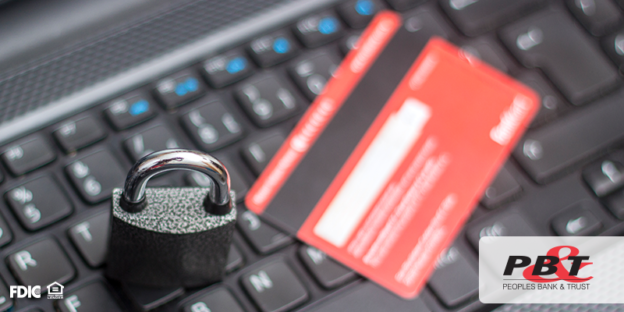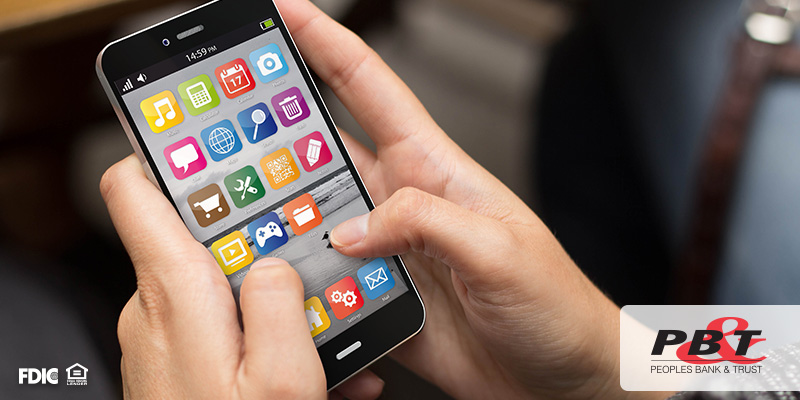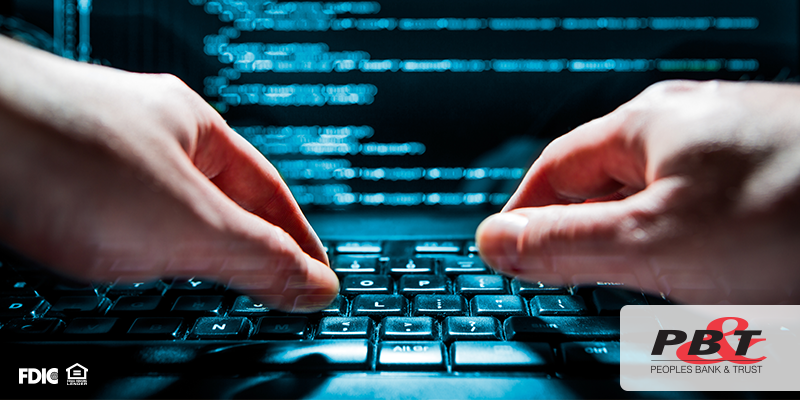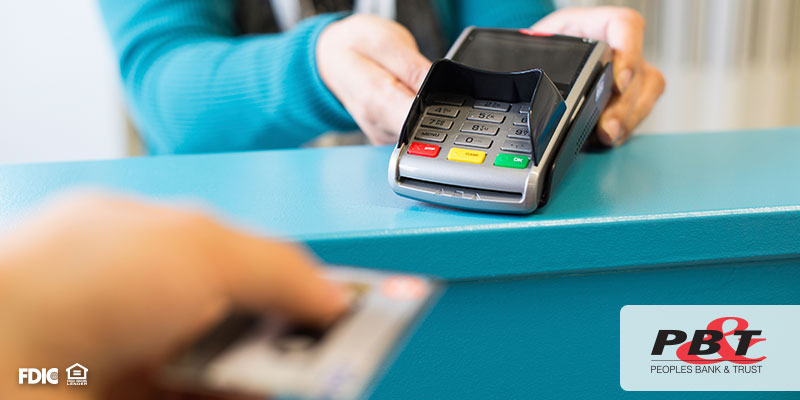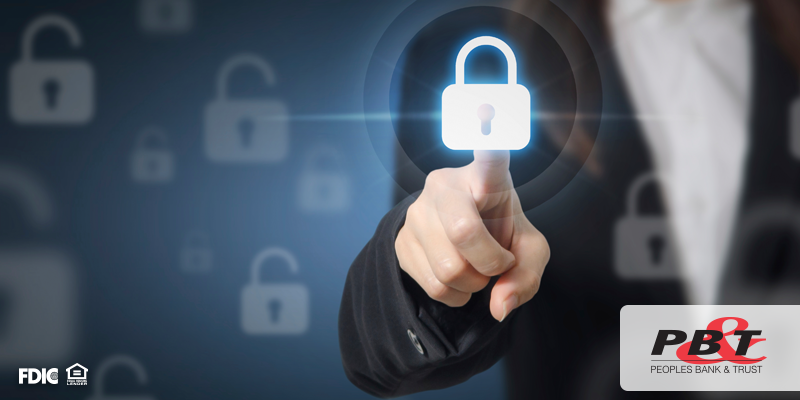As the holidays roll up, customers buying items online increases exponentially. Unfortunately, cyber attacks and identity theft also increase with that number. That’s why the professionals at Peoples Bank & Trust have come up with some helpful tips and tricks to stay safe when shopping online this holiday season!
Don’t Use Unknown Wireless Networks
If you are in a coffee shop or airport and a network pops up for you to connect to, your chance of being hacked skyrockets. When the network you are on is not protected, hackers have a chance to get into your phone and locate passwords, account information, and more. Even though you want to check your email or see if there is a good deal somewhere, try to resist in order to protect yourself.
Use Different Passwords
Yes, it is hard to use a different password for each site when you are connected to 50 or 100 sites. However, if a hacker gets ahold of one password, they can instantly use that password with your email to log into all other sites that have the same one.
Don’t Store Credit Card Info on Sites
When online sites have you enter your credit or debit card information, many of them give you an option to save your card information. They say it’s secure and most of the time it is, but hackers are still able to get into their account and find your information. Even though it’s a little more work to type your information in each time, it’s more work to deal with getting your money back after someone has stolen your information and used it.
Avoid Clicking Links
When shopping online, you may have a million links pop up for the item you’re searching for.. These are easy ways for hackers to bring you to a site they created to give you malware. That’s why it’s important to only click the links on trusted sites.
Shop Secure Sites
As mentioned above, it is okay to trust links within a secure site. However, if you are searching online for a certain gift to give someone and find a list that links to different sites, do not trust those sites. Search online about which sites are credible before you go to them and give them your credit card information.
These tips will aid you in being a security savvy shopper when the holidays begin to hit. If you have any questions or concerns about your account, be sure to contact Peoples Bank & Trust. Our team of professionals is here to help if a problem of stolen information does arise!
Peoples Bank & Trust Co.
Member FDIC
Equal Housing Lender


